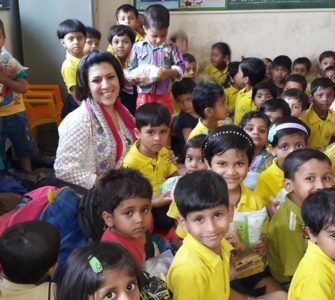
By: Dr. Monica Khanna
Sometimes one wonders if we have really been able to overcome the caste bias that existed in India a few decades ago – or whether that bias has just shifted to class instead. The hangover of the British Raj still prevails, but instead of ‘Dogs and Indians not allowed’, we have graduated to ‘Maids and Drivers not allowed’.
I was appalled when we entered a prestigious South Mumbai club with our domestic help, but were forced to drop her to a relative’s place close by, because the club did not allow domestic helpers and drivers to sit inside the club. The authorities apologized that they could not change or bend the rules made countless years ago. Besides, it may offend the sensibilities of the aristocratic members of the club, who would find it beneath their dignity to sit with ‘such’ people.
In a posh housing society in Navi Mumbai, there is a separate lift for maids, drivers, labourers and vendors. One can understand a separate service lift for labourers who carry goods and material. One can also understand a separate lift for milk and newspaper vendors who stop the lift at every floor, thus causing inconvenience to residents, especially during school and office hours. But to have a separate lift for domestic helpers and drivers reeks of a class bias. And it doesn’t stop just at a lift – in many households, there are separate dishes for domestic helpers, as though the touch of the maid would pollute the dishes used by the rest of the family. Yet, these are the same people who clean our vessels and our houses, and make our lives easier, giving us the time and energy to concentrate on our other goals. These are the people whose absence at work even on a single day turns our schedule and life topsy turvy.
The government is trying to bring about a change and make education accessible for children from lower income families by providing free education in good schools through the Right to Education policy. However, in a recent discussion with a school principal, I discovered that children from upper and middle class families refuse to sit next to RTE children. Parents come to school requesting the teachers to change the seats as the RTE kids are supposedly unclean and have lice in their hair. The recent film Hichki clearly portrays the prejudice against RTE children in snobbish and upmarket schools, and also dwells on the ostracism and humiliation these children are forced to deal with. This completely destroys their self-esteem and desire to succeed in life.
Lord Krishna had spoken about class and the dignity of labour in the Bhagwad Gita, stating clearly that no work is high or low in status. This classification of work has not been ordained by nature – but rather, by human beings who create discrimination, and consequently negative energy around the task to be accomplished. As Arjuna’s charioteer, Krishna himself watered and groomed the horses, and maintained the chariots in battle. It did not hurt his ego to wash the feet of his dear childhood friend Sudama.
To assault the dignity of a human being in this day and age, and to treat an individual with disrespect on account of their socio-economic class, is absolutely shameful.
The writer is an academician and author, working as Associate Professor at Indira Institute of Business Management. Her doctoral thesis and consequent research has been in the field of gender studies.
The views expressed in the article are of writer alone.










